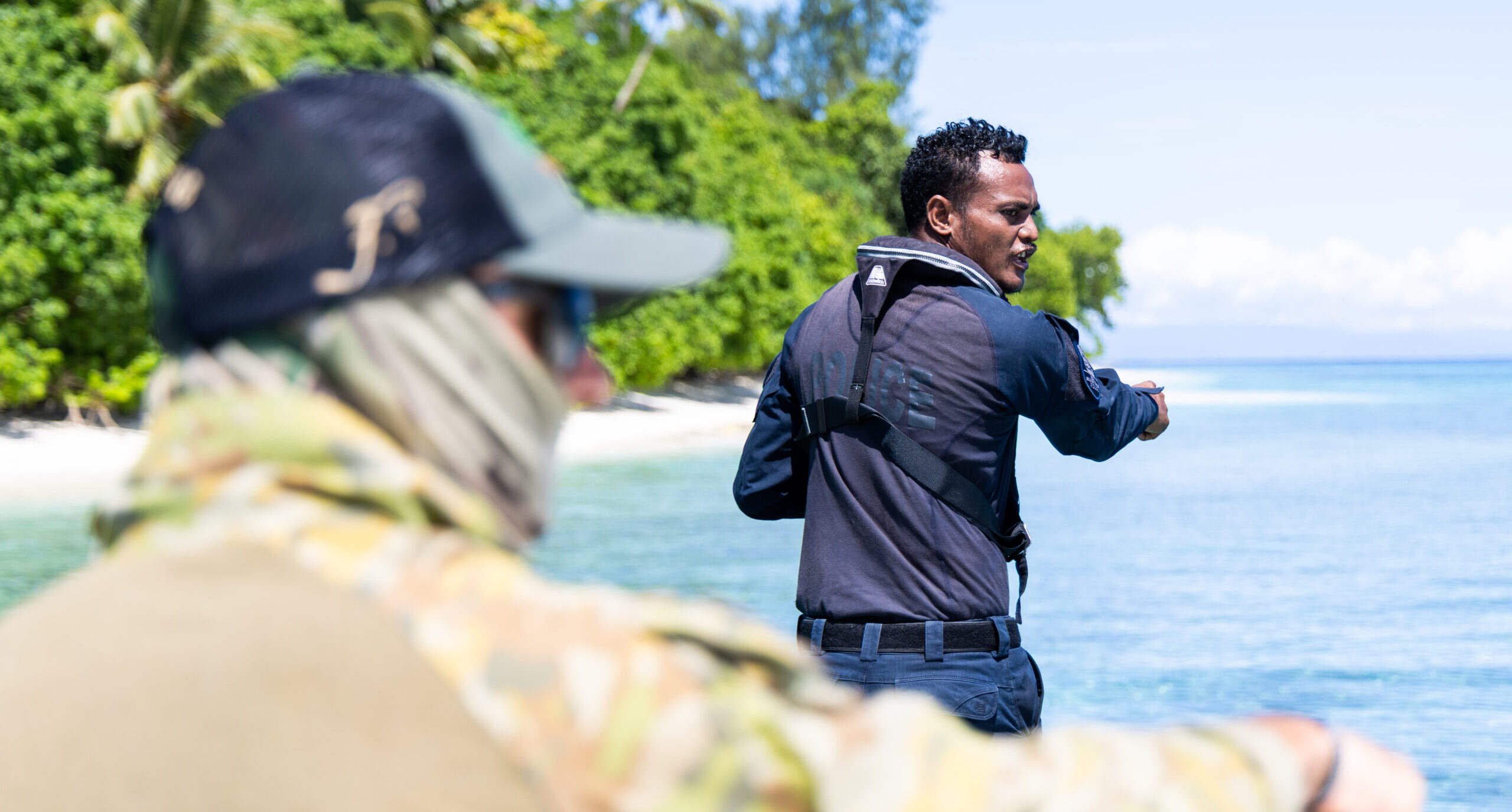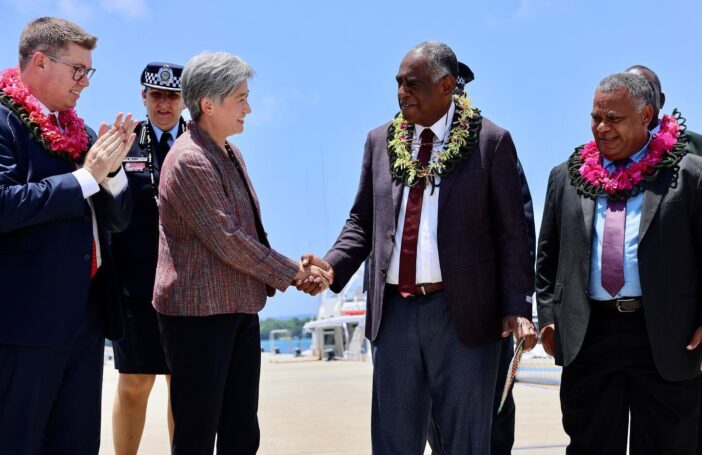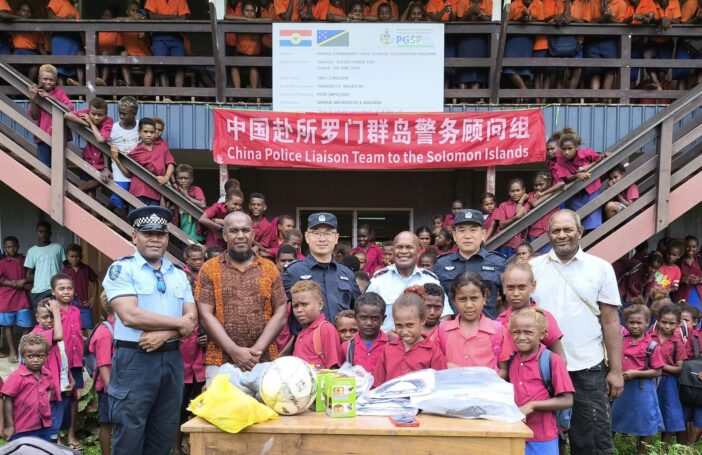This article is a further instalment in the Pacific Family Matters series.
With the Australian Labor Party returning to power, Pacific island governments will appreciate the continuity in diplomacy and security. With established bilateral relationships, the Albanese Government 2.0 can go beyond reactive responses to China and address key problems that negatively affect security in the Pacific Islands and Australia.
Our experience of working in the Pacific is that meaningful relationships are built through problem-solving teams. These teams listen to one another and acknowledge each other’s expertise and experience, and are attuned to local cultural practices and ways of working. The Albanese government promised to listen in their first term. In the government’s second term, Australian and Pacific partners can cement trust by working together to problem-solve some of the region’s greatest challenges, such as transnational crime and internal conflict. It will be essential to go beyond the disruptive training of police personnel overseas and actually work with multi-agency groupings in-country on operations that deliver practical solutions and make a difference to communities.
Prime Minister Anthony Albanese should build upon the relationships with Pacific Island leaders that his government established in his first term to strengthen coordinated efforts to boost regional unity and durable peace. Albanese needs to continue to visit key Pacific partners and participate in key regional meetings to show that diplomacy is not just delegated down but occurs at the leaders’ level — and that the door is open for constructive relations and new Pacific-led initiatives.
For Australia’s defence and foreign affairs ministers, it’s time to go from launches and “big things” to outcomes and big wins. Australia has focused on border security for decades, particularly on combating the movement of illicit drugs across the Pacific. But this focus on border security should be broadened to incorporate illegal flows of flora and fauna. In places like Solomon Islands, the national economy and the social sectors are affected by illicit and exploitative movements of logs, minerals, beche-de-mer and fish as shipments enter and leave the region undetected.
Human trafficking is sometimes linked to these illicit trades and is not as easy to target at the border — it requires cooperation between agencies, both nationally and internationally. Australia could support new collaborations between Pacific and Asian nations. Building on the success of regional fisheries monitoring, control and surveillance operations which last a few days or weeks, we need cooperation between transnational crime and biosecurity experts on a systemic and daily basis to stop illegal trade in goods and people. For example, teams of environmental scientists, economists, lawyers, law enforcement officers and development workers from both the Pacific and Australia could do more to uncover the value chain of illegally traded goods and work with the Pacific Transnational Crime Coordination Centre and other related regional organisations to identify when to intervene. No single agency can do it alone, but with a collective effort these issues can be tackled more effectively.
In Papua New Guinea, the incidence of gun violence is rapidly increasing. Border security and law enforcement officers in the region could work together more closely to analyse where guns used in tribal warfare are coming from and intervene to stop the supply in order to create a more conducive environment for local peacebuilders, including women and civil society. Critical to success in such situations is working with local communities in a multi-faceted approach.
Thinking about who profits from illegal guns is a good start to thinking about how to stop the trade, including consideration of the possible role of Australian companies. Where Australian weapons are potentially involved in the supply chain, the defence minister could consider actions to stop the movement of weapons. To tackle the problem of illegal firearms trading across borders, the Australian Government can use leader-level diplomacy to encourage national leaders in Asia and Pacific Islands to move towards practical cooperation on gun control and celebrate wins achieved.
Another area in desperate need of problem solving is disinformation and conflict. For small nations with limited cybersecurity and IT expertise, understanding how to prevent and limit disinformation is critical. We need teams of Australians and Islanders to work together to identify disinformation that arises within the local context, during conflicts and from state-sponsored and overseas groups. Peer-to-peer networks of specialists across the Pacific could evolve into cross-border communities of practice able to help prevent disinformation and promote digital literacy to enable more critical consumption of social media and limit disinformation’s spread.
Issues involving nefarious actors and disinformation illustrate how practical solutions require the development, diplomacy and security communities to work in a more coordinated fashion within the region. While the US and other partners are reducing aid spending and the global economic outlook is shaky, doing more with less in Pacific peace and security will be inevitable. With the recent election win, Albanese and his cabinet have an opportunity to advance genuine partnerships to support development and security efforts that are politically backed, cross-sectoral and solution-oriented, enabling Australia and Pacific countries to go further together.
The Pacific Family Matters series explores priorities for the re-elected Labor Government’s engagement on development issues with the Pacific Islands region. It draws on the expertise of the Pacific Research Program, a consortium led by the Department of Pacific Affairs at the Australian National University (ANU), in partnership with ANU’s Development Policy Centre and the Lowy Institute.




